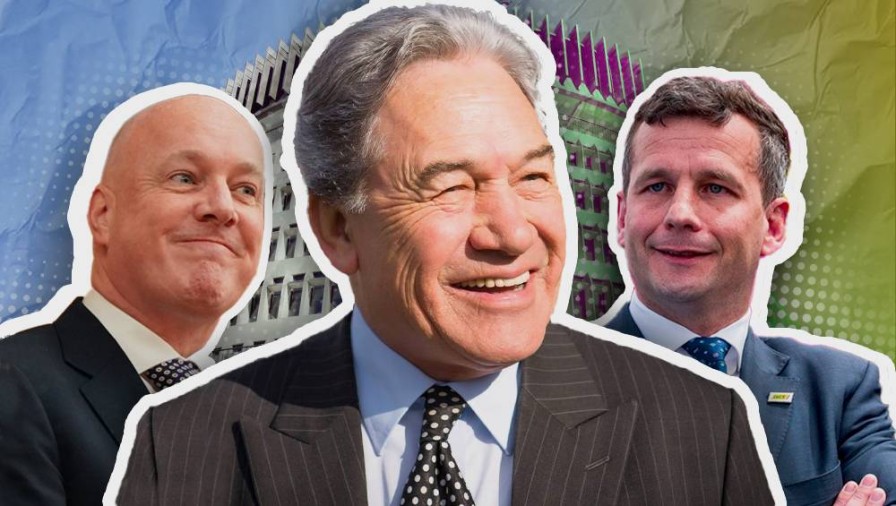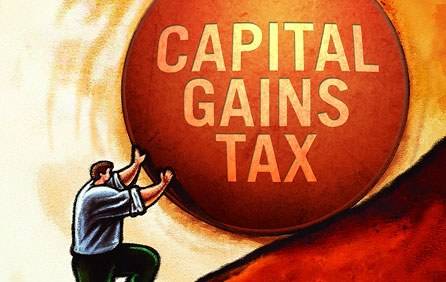Coalition talks, Labour leadership endorsed, ‘that’ referendum
ANALYSIS: While the country waits for a new Government, the Opposition has been formed.
WATCH: NBR political editor Brent Edwards speaks with Grant Walker.
ANALYSIS: While the country waits for a new Government, the Opposition has been formed.
WATCH: NBR political editor Brent Edwards speaks with Grant Walker.
In his interview with NBR this week New Zealand First leader Winston Peters was positive about the prospects of striking a coalition agreement within two weeks – but there is an ‘if’.
“All those things are up for negotiation, if we decide to go down that pathway,” Peters says.
NBR presenter Grant Walker seems incredulous that Peters might walk away from a deal.
But the New Zealand First leader explains it this way: “[You] walk into negotiations on the basis that you might lose. You might not go there in the end. You go there with the right purpose, but if you want to be true to yourself and the people who voted for you, you’ve got to have that view as well, that this may not happen. We’ll do the best we can to make sure it happens, if we can,” he says.
And that seems logical. It is hard to think anyone would go into a negotiation – whether it is political, commercial, or otherwise – with the view they will settle no matter the outcome. All parties have to come away from such negotiations with a win of sorts. Peters is clear, too, that no party can get everything they want and that there are plenty of areas of alignment between New Zealand First, National and Act.
When those areas of alignment are taken into account – including, for instance, Act and New Zealand First agreeing that defence spending should be lifted to 2% of GDP – there seems plenty of opportunity for a deal to be struck, from which all parties can claim a victory of sorts, while acknowledging they cannot achieve all their policy objectives.

Winston Peters says none of the three parties can get everything it wants.
Talks are progressing but it is still not clear exactly when an agreement might be announced. It seems likely though that all parties might be motivated by the Apec leaders meeting in San Francisco, which takes place late next week. At the same time none of the parties would want to rush the process and come away with a flawed coalition agreement that could cause problems later.
While the country waits for a new Government to be formed, the outline of the new Opposition has largely been decided.
This week, Labour MPs met in Upper Hutt – in outgoing Prime Minister Chris Hipkins’ Remutaka electorate – and endorsed him to carry on as leader of the party following its election loss. While there were murmurings about his leadership, there is – for the moment at least – no obvious successor.
Former United Future leader and Labour MP Peter Dunne wrote in his column this week that only Hipkins has the “mana to manage a battered and bruised Labour caucus as it begins its long journey to recovery.
“There is no-one else in the caucus with the capability of doing that. Hipkins’ retention was the sensible and obvious move, and the fact it was carried out with a minimum of fuss is a positive for Labour,” Dunne says.
But Walker asks what the odds are on Hipkins staying as leader for the whole three years of this parliamentary term.
Dunne thinks that will be a matter for Hipkins to decide but suggests he might reconsider his future in 18 months to two years.
“It would be no surprise then to see him follow the pattern of other former prime ministers and decide to step down from Parliament altogether, at or before the next election,” Dunne says.

Labour Party leader Chris Hipkins and his new deputy Carmel Sepuloni.
Yet Hipkins is still a young man and says he has both plenty of political fight left in him as well as an ongoing commitment to the Labour Party. And to step down on the eve of another election campaign, particularly if Labour has consolidated after this election loss, could put any gains it has made at risk.
Much, of course, will depend on the policy debates the party must inevitably engage in during its period in Opposition.
Hipkins told reporters this week that every policy was up for review, including the wealth and capital gains tax policies he had ruled out before the election. It has prompted a rash of commentary about him going back on a clear commitment he had given as prime minister. But, as he points out, Labour lost the election and lost it badly. It needs to review everything it did – including policies it adopted and did not adopt – as it tries to plan a path back to power.
None of this means the party will adopt a wealth or capital gains tax for the next election. There were plenty of reasons why Labour did so badly in October and tax policy would have played only a small part.
If Labour is to adopt a capital gains tax – which is probably a more likely option than a wealth tax – it does need to do so in a considered manner and start advocating for the policy long before the next campaign begins. How Labour conducts those policy debates, and its election review, might determine what shape it is in heading into the 2026 election. If the debate becomes bitter and descends into finger pointing about who is to blame, then Labour could yet repeat the miserable period it endured long after its 2008 election loss.
As well as Hipkins being endorsed as leader, Carmel Sepuloni was elected as deputy leader to replace Kelvin Davis, who did not contest the position. Davis has long looked uncomfortable in the role, happily stepping aside to allow first Grant Robertson to be deputy Prime Minister in Jacinda Ardern’s administration and then Sepuloni to take on that role when Hipkins became Prime Minister.

A capital gains tax is again on Labour’s agenda for debate.
Meanwhile, senior Labour Māori MP Willie Jackson has said Māori have told him they would “go to war” if Act’s proposal to hold a referendum on the Treaty of Waitangi went ahead.
“Be very clear; I don’t want any disruption or violence. I’m not advocating for that at all. But I do understand our people’s frustration and anger if this was to go ahead…
“I’m just giving a warning. I work amongst our people … who will go to war for this, war against [Act leader David] Seymour and his mates,” RNZ reported Jackson saying.
But National Party leader Christopher Luxon has signalled clearly he does not support the proposed referendum, saying it would be “divisive and unhelpful”.
We will know soon enough, with coalition talks progressing and a sense something might be announced within the next week. Luxon is keen to go to the Apec leaders’ meeting at the end of next week. If he is to rub shoulders with United States president Joe Biden and other world leaders, he has only got a few days to sort out the agreements with Act and New Zealand First.
Brent Edwards is NBR’s political editor.